Daniel Salzler No. 1186
EnviroInsight.org Two Items January 27, 2023
—————Feel Free To Pass This Along To Others——————
If your watershed is doing something you would like others to know about, or you know
of something others can benefit from, let me know and I will place it in this Information .
If you want to be removed from the distribution list, please let me know.
Please note that all meetings listed are open.
Enhance your viewing by downloading the pdf file to view photos, etc.
The attached is all about improving life in the watershed.
If you want to be removed from the distribution list,
please let me know. Please note that all meetings listed are open.
Check our website at EnviroInsight.org
1. Eleven Reasons to Protect the Verde River
By Gary Beverly ([email protected])
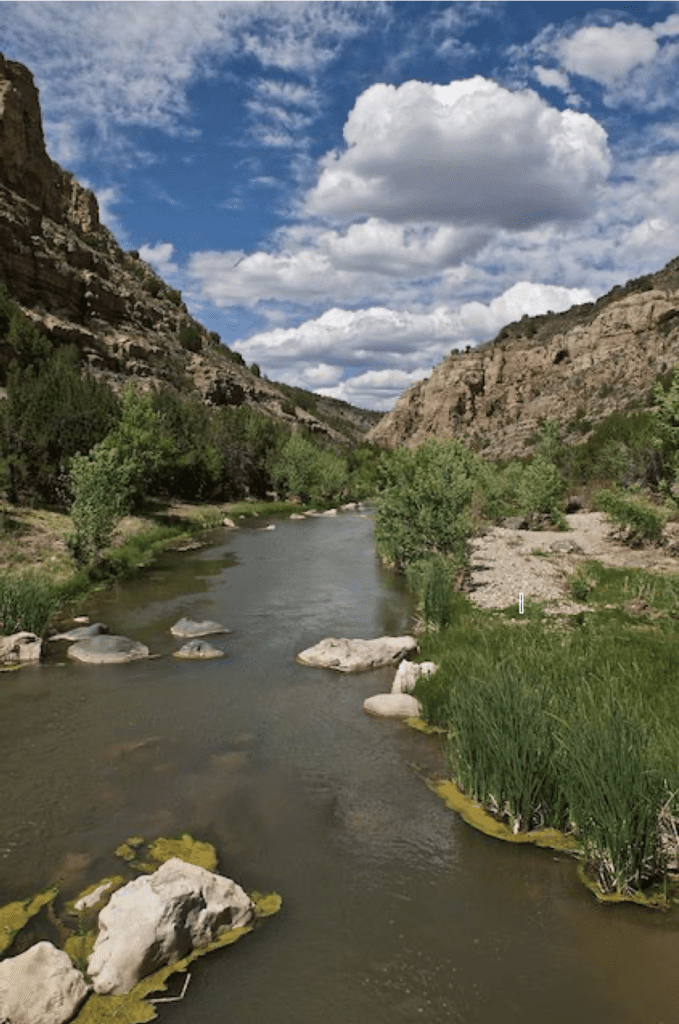
The Verde River is a green artery pulsing through the heart of Arizona, a jewel of the Southwest, continuously =lowing over 190 miles from Paulden to the Salt River near Scottsdale.
The upper Verde, tucked away deep within the Prescott National Forest between Paulden and Clarkdale, is remote, unknown, under-appreciated, and threatened. The upper Verde’s future is clouded by unmitigated groundwater pumping in the Big Chino Valley, which will eventually convert 25 miles of a living river into a dead, dry wash.
The Sierra Club believes that we are smart enough to live here responsibly, enjoying a comfortable lifestyle while protecting our natural areas and our wildlife. The question is: Do we have the political will?
Here are eleven reasons we should protect the Verde:
Economy: The Verde sustains over 700 jobs and over $100 million in economic value in the Verde Valley, plus 40% of the Phoenix area’s surface water supply. Plus, natural areas are proven to benefit local economies.
Recreation: As our population grows, we require more recreational area. The upper Verde is a wonderful place for people to hike, hunt, fish, camp, backpack, kayak, canoe, view wildlife, photograph, ride horses, climb rocks, and observe birds.
Quality of Life: Clean air, unfettered open spaces and bodies of water, and opportunities to view wildlife enhance our daily living.

Scenery: Primal colors and spectacular rock formations create scenery second to none in the state —
red rocks, green plants, blue sky, and white clouds. The Verde displays tremendous natural beauty.
Cultural & Historic Values: The entire river corridor is laced with ancient rock art, campsites, structures, and artifacts revealing the historical lifestyle of Native Americans. The river and its springs are an essential spiritual and cultural foundation for the Yavapai-Apache Nation. Also, remnants of early Arizona ranching history dot the canyon.
Wildlife: Although the Verde River watershed comprises only 5.8 percent of the land area in Arizona, it contains the best remaining riparian areas — lush, green ribbons full of life. The Verde supports a surprisingly large fraction of Arizona’s vertebrate species: 78 percent of breeding bird species, 89 percent of bat and carnivore species, 83 percent of native ungulate species, and 76 percent of reptiles and amphibian genera — an impressive concentration of wildlife. Many bald eagles overwinter on the Verde. Seven eagle chicks have fledged at Del Rio Springs in the last five years. The Verde River, the lifeblood of the watershed, supports most of Arizona’s wildlife species, a heritage we all share.
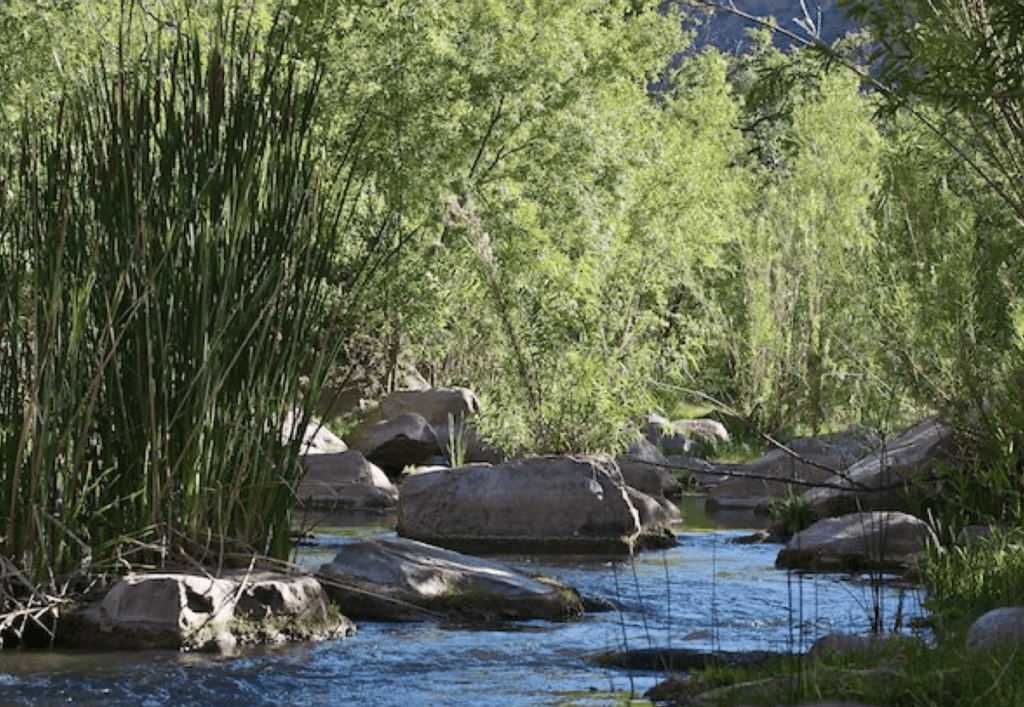
Endangered Species: The Verde River supports a rich and diverse variety of plants, animals, and fish. The Endangered Species Act (ESA) lists 21 species in the Verde watershed, including the yellow-billed cuckoo, the southwestern willow flycatcher, native fish and snakes, and more. Wildlife managers monitor an additional 16 sensitive species of concern.
Native Fish: Of Arizona’s original 33 native fish, three are extinct, 19 are protected by the ESA, and the Verde supports ten. The upper Verde River sustains four ESA-listed native fish.
Uniqueness: Of Arizona’s six major perennial rivers, the Gila, Salt, and Santa Cruz Rivers have been consumed by dams and groundwater pumping, the Colorado is fully diverted and no longer flows to the Gulf of California, and the San Pedro is struggling for life. The Verde River is the longest surviving living river in Arizona.
Stewardship: Because we exploit our forests, rivers, and land for the resources that support our society, some environmental degradation is inevitable. Our challenge is to manage this rich and amazing world sustainably so our kids, and their children, can also live comfortably and enjoy nature and wildlife. We can learn from our local Native Americans, the Yavapai-Apache Nation in Camp Verde. Monica Marquez, a Yavapai, told me: “Water is Life. You never take it all.” Vince Randall, past YAN Tribal Chairman and Apache Cultural Chair, asks: “When are you going to learn to share with all living things? When will you learn the true meaning of stewardship? Will it be when there is only one of you left?”
Water is Life: To indigenous people, the land, plants, and animals are alive; they are identified as beings to be respected, not as nouns representing objects to be owned and exploited. When asked “Where is the river?” they reply “The river lives over there.”
What You Can Do:
Join a local conservation group working to protect the Verde: Sierra Club (arizona.sierraclub.org/Yavapai)
Learn about the Verde River! Read about water on cwagaz.org. Sign up for a Sierra Club hike on the river or volunteer to help us monitor the river flow.
Share your knowledge with your friends and neighbors. Schedule a showing of Viva La Verde or a speaker for your group (cwagaz.org).
Vote for candidates that care and have a clue; make water and rivers an election issue. We must modernize Arizona water law.
Conserve Water: To protect the Verde, we need to use less water and reduce groundwater pumping: minimize your water use, use drought-tolerant landscaping, and use rainwater harvesting to irrigate landscapes and gardens. When your hand is on the faucet, your choices affect this river, our wildlife, and our children’s future quality of life.
Support Congressional designation of the Upper Verde Wild and Scenic River.
2. Legislative Consideration Of ProposalsAs of January 12th, 2023.
HB 2026 – Appropriation; on-farm efficiency fund
Sponsor: Rep. Timothy M. Dunn (R)
Summary: Appropriates $30 million from the general fund in FY2023-24 to the On-Farm Irrigation Efficiency Fund.

Position: No position
Last Action:
01/18/2023
H – Hearing Scheduled
01/24/2023 2:00 PM – House NREW, HHR 1
HB 2048 – Assured water; small residential developments
Sponsor: Rep. Selina Bliss (R)
Summary: A person seeking a building permit for six or more residences within an active management area in an unincorporated area of a county is required to obtain a certificate of assured water supply from the Department of Water Resources before presenting the permit application for approval to the county. Does not apply if the applicant has obtained a written commitment of water service for the residences from a municipal or private water company designated as having an assured water supply.
Position: No position
Last Action:
01/18/2023
H – Hearing Scheduled
01/18/2023 – Second Reading, Floor
Second Reading
HB 2056 – Dry washes; permit program exemption
Sponsor: Rep. Lupe Diaz (R)
Summary: Declares that a dry wash, arroyo or other similar physical feature on private property that does not contain water is not a “water of Arizona,” is exempt from the Dredge and Fill Permit Program, and is not a “water of the United States” under the federal Clean Water Act.
Position: No position selected.
Last Action:
01/19/2023
Hearing Scheduled: 01/24/2023 2:00 PM – House NREW, HHR 1
HB 2164 – Subsequent irrigation; non-expansion areas; procedures
Sponsor: Rep. Stephanie Stahl Hamilton (D)
Summary: The circumstances that must exist for the Director of the Department of Water Resources to designate an area that is not included in an active management area as a subsequent irrigation non-expansion area are modified to include that there is insufficient groundwater to provide a “reasonably safe supply for irrigation” (defined) of the cultivated lands in the area at the reasonable projected rates of withdrawal, instead of at the current rates of withdrawal. In making the determination, the Director is allowed to consider credible evidence that indicates likely future changes to rates of withdrawal. Also modifies the procedure for the designation of a subsequent irrigation non-expansion area initiated by petition.
Position: No position
Last Action:
01/19/2023 Floor Second Reading
HB 2165 – Adequate water supply; statewide requirements
Sponsor: Rep. Stephanie Stahl Hamilton (D)
Summary: Counties and municipalities are authorized to approve a subdivision plat only if the subdivider has obtained a water report from the Arizona Department of Water Resources (ADWR) that there is an adequate water supply for the subdivision or the subdivider has obtained a written commitment of water service for the subdivision from a city, town or private water company designated as having an adequate water supply. The State Real Estate Commissioner is authorized to issue a public report authorizing the sale or lease of subdivided lands only if the Director of ADWR has issued a water report that there is an adequate water supply for the subdivision or the subdivider has obtained a written commitment of water service for the subdivision from a city, town or private water company designated as having an adequate water supply.

Position: No position
Last Action:
01/19/2023 Floor Second Reading
HB 2260 – Wells; permits; spacing rules.
Sponsor: Rep. Andrés Cano (D)
Summary: The Department of Water Resources (DWR) is required to adopt rules governing the location of new wells and replacement wells in new locations in groundwater basins that DWR determines to be experiencing declining groundwater levels, for wells having a pump with a maximum capacity of more than 35 gallons per minute. In lieu of adopting new rules, DWR is permitted to follow the criteria for proposed withdrawals in active management areas.
Position: No position
Last Action:
01/19/2023 Floor Second Reading
HB 2266 – Reporting; groundwater pumping; measuring
Sponsor: Rep. Andrés Cano (D)
Summary: A person who withdraws groundwater from a nonexempt well under any circumstances and in any location is required to use a water measuring device approved by the Arizona Department of Water Resources (ADWR) and to file an annual report to ADWR. Some exceptions. Information that must be included in the annual report to ADWR is specified.
Position: No position
Last Action:
01/19/2023 Floor Second Reading
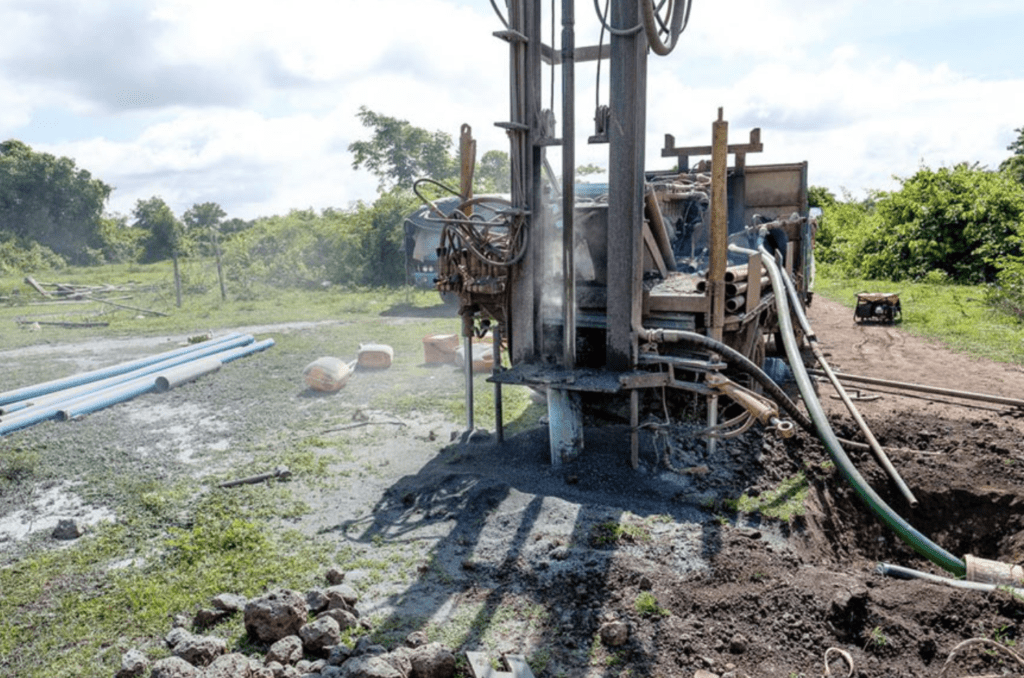
HB 2278 – Well drilling; groundwater basins.
Sponsor: Rep. Andrés Cano (D)
Summary: Beginning on the effective date of this legislation, a person is prohibited from constructing and the Department of Water Resources is prohibited from issuing a permit or drilling card for a new well in the Upper San Pedro Groundwater Basin or the Verde Valley Groundwater Subbasin. Some exceptions.
Position: No position
Last Action:
01/19/2023 Floor Second Reading
HB 2286 – Appropriation; Little Colorado River levee
Sponsor: Rep. David L. Cook (R)
Summary: Appropriates $20 million from the general fund in FY2023-24 to the Arizona Department of Transportation to distribute to Navajo County to reconstruct the Little Colorado River levee at the City of Winslow.
Position: No position
Last Action:
01/19/2023 Floor Second Reading
|
HB 2323 – Water augmentation fund; brackish groundwater
Sponsor: Rep. Alexander Kolodin (R)
Summary: For the purpose of qualifying for monies in the Long-Term Water Augmentation Fund, a water supply development project for the desalination and distribution of brackish or saline groundwater is deemed to be a water supply development project that imports water from outside the boundaries of Arizona (and therefore qualifies), without regard to whether the monies for the project are expended inside Arizona or whether the project imports water from outside the boundaries of Arizona.
Position: No position selected.
Last Action:
01/19/2023 Floor Second Reading
\
HB 2350 – State properties; grass lawns; prohibition
Sponsor: Rep. Patricia Contreras (D)
Summary:
Beginning on the effective date of this legislation, the Arizona Department of Administration (ADOA) is prohibited from installing natural grass on the grounds of any state property except to replace existing natural grass for recreational use or install new natural grass for recreational use. ADOA is required to remove any natural grass on the grounds of all state property and replace it with artificial turf or xeriscape. Does not apply to state property that is the responsibility of Legislative Council, except for the lawns on Wesley Bolin Plaza. Contains a legislative intent section.
Position: No position
Last Action:
01/19/2023
H – Referred to Committee – Rules – House Rules
HB 2372– Colorado River water transfers; limit
Sponsor: Rep. Leo Biasiucci (R)
Summary: A contract holder with a contract right in effect on January 1, 2023 for fourth priority Colorado River water available to satisfy entitlements in Arizona that is not contracted for delivery through the Central Arizona Project is prohibited from transfering or otherwise conveying that claim for use of that water to any location or for use other than an agricultural, municipal, domestic, commercial or industrial use in a county in Arizona that is adjacent to the western border of Arizona before January 1, 2033 or until Lake Mead exceeds an elevation of 1,090 feet, whichever is later. Does not apply to the transfer of 2,033.01 acre feet of Colorado River water recommended for approval by the Director of the Arizona Department of Water Resources by letter to the United States Bureau of Reclamation on January 20, 2021.
Position: No position
Last Action:
01/19/2023 Floor Second Reading
HB 2411 – Water supply; elimination; reduction; damages
Sponsor: Rep. David L. Cook (R)
Summary: If a city provides water to customers outside of the city’s service area before January 1, 2023 and reduces or terminates that service on or after January 1, 2023, the city is required to make the same reduction in or termination of the water supply to the Mayor and members of the City Council. If a city terminates water service in these circumstances, the city is liable, with respect to the persons whose water was terminated, for fire damage to personal property, health problems incurred by children as the result of the termination, and attorney fees.
Position: No position
Last Action: 01/19/2023 H – Referred to Committee – Rules – House Rules

HB 2413 – Teachers; water conservation instruction; appropriation
Sponsor: Rep. Laura Terech (D)
Summary: Establishes the Arizona Water Conservation Instruction Fund, to be administered by the Arizona Department of Education (ADE) to be used for grants for teachers to pay for the costs of attending a professional development training course on providing instruction in water conservation and drought management. The Fund self-repeals January 1, 2031. Appropriates $100,000 from the general fund in FY2023-24 to the Fund.
Position: No position
Last Action:
01/19/2023
H – Referred to Committee – Rules – House Rules
HB 2438 – Board of supervisors; powers; water
Sponsor: Rep. Gail Griffin (R)
Summary: County boards of supervisors are authorized to participate in water reuse and recycling programs and regional wastewater recharge projects and related infrastructure.
Position: No position
Last Action:
01/19/2023
H – Referred to Committee – Rules – House Rules
HB 2442– Temporary non-expansion area
Sponsor: Rep. Gail Griffin (R)
Summary: Establishes a process for irrigation users or registered voters to petition the Arizona Department of Water Resources (ADWR) for the designation of a temporary non-expansion area in any location not included in an active management area or an irrigation non-expansion area. The question of whether to designate a temporary non-expansion area must be approved by a majority of the voters who reside inside the boundaries of the proposed area. If a temporary non-expansion area is established, only acres of land that were irrigated at any time during the preceding five years may be irrigated with groundwater, and ADWR is prohibited from authorizing the drilling of a well in the area.
Position: No position
Last Action:
Last Action:
01/19/2023
Hearing Scheduled: 01/24/2023 2:00 PM – House NREW, HHR 1
HB 2443 – Navigable stream adjudication commission; extension
Sponsor: Rep. Gail Griffin (R)
Summary: The statutory life of the Arizona Navigable Stream Adjudication Commission is extended four years to July 1, 2028.
Position: No position
Last Action:
H – Referred to Committee – Rules – House Rules
HB 2444 – Natural resource conservation districts; revisions
Sponsor: Rep. Gail Griffin (R)
Summary: Various changes to statutes related to natural resource conservation districts. Establishes a Natural Resource Conservation District Fund and a 9-member Natural Resource Conservation District Fund Commission. Specifies Commission powers and duties, including awarding grant monies from the Fund to natural resource conservation districts to finance conservation programs in Arizona. Natural resource conservation districts are authorized to apply for, receive, and spend monies from the Water Infrastructure Finance Authority of Arizona.
Position: No position
Last Action:
01/19/2023
H – Referred to Committee – Rules – House Rules
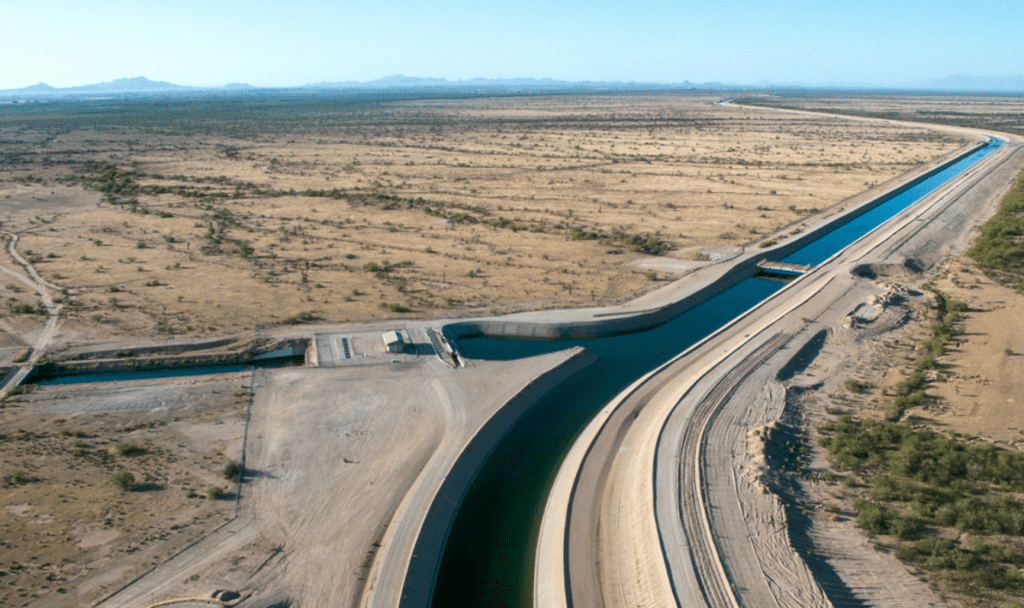
HB 2448 – Appropriation; groundwater; Santa Rosa canal
Sponsor: Rep. Teresa Martinez (R)
Summary: Appropriates $25 million from the general fund in FY2023-24 to the Arizona Department of Water Resources to distribute equally between the irrigation districts that are constructing infrastructure to support the settlement between the Maricopa-Stanfield Irrigation and Drainage District, the Central Arizona Irrigation and Drainage District, and the Ak-chin Indian Community with respect to the delivery of groundwater by the districts by means other than the Santa Rosa Canal.
Position: No position
Last Action:
01/19/2023
H – Referred to Committee – Rules – House Rules
HB 2481 – Appropriation; irrigation sprinkler systems; xeriscaping
Sponsor: Rep. Kevin Payne (R)
Summary: Appropriates $810,000 from the general fund in FY2023-24 to the Department of Water Resources to distribute to the City of Glendale for smart irrigation sprinkler systems and xeriscape landscaping in the right-of way of roadways.
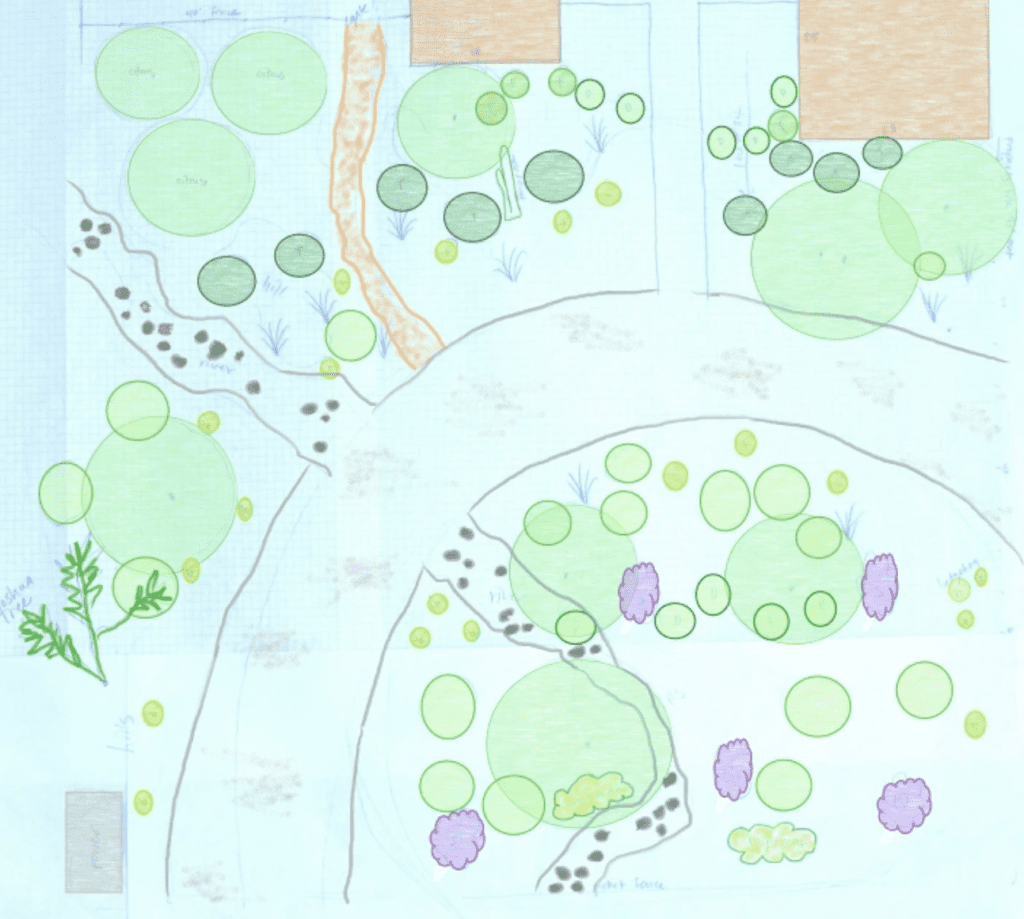
Position: No position
Last Action:
01/19/2023
H – Referred to Committee – Rules – House Rules
HB 2519 – Agrivoltaics study committee
Sponsor: Rep. Stephanie Stahl Hamilton (D)
Summary: Establishes an 11-member Agrivoltaics Study Committee to assess the potential of agrivoltaics to increase crop production, reduce water consumption by crops, and improve renewable energy production. The Committee is required to submit a report of its findings and recommendations to the Governor and the Legislature by January 1, 2025, and self-repeals July 1, 2026.
Position: No position
Last Action:
01/19/2023
H – Introduced
HB 2520 – Home sales; water supply disclosure
Sponsor: Rep. Stephanie Stahl Hamilton (D)
Summary: Beginning January 1, 2024, a subdivider who sells one or more lots in a subdivision located outside of an active management area is required to record with the county recorder a document that contains a statement of water adequacy or inadequacy for that subdivision.
Position: No position
Last Action:
01/19/2023
H – Introduced
HB 2522 – Watershed health; use; survey
Sponsor: Rep. Stephanie Stahl Hamilton (D)
Summary: A water right may be severed from the land to which it is appurtenant or from the site of its use if, with the consent and approval of the owner of such right, the right may be transferred for use for watershed health. The Director of the Arizona Department of Water Resources (ADWR) is required to establish a set of standard measures to define ecological water needs in Arizona, which must include specified criteria. By December 31, 2024, the Director is required to publish a preliminary survey of the status of the waters in Arizona, including specified information, and post the final survey and responses to all public comments received on the ADWR website for a period of at least six months. By December 31 every three years after the initial preliminary survey, the Director of ADWR is required to issue a report that includes an assessment of the overall health of each watershed in Arizona, based on an evaluation of specified attributes of the watershed.
Position: No position
Last Action:
01/19/2023
H – Introduced
HCM 2006 – Urging eradication; salt cedars; waterways
Sponsor: Rep. Gail Griffin (R)
Summary: The Legislature urges the U.S. Congress to appropriate monies to the State of Arizona to eradicate salt cedars from Arizona waterways. The Legislature urges the U.S. Department of the Interior and the U.S. Department of Agriculture to develop innovative solutions to control the proliferation of salt cedars. The Secretary of State is directed to transmit copies of this memorial to the President of the U.S., the President of the U.S. Senate, the Speaker of the U.S. House, the Secretary of the U.S. Department of the Interior, the Secretary of the U.S. Department of Agriculture, and each member of Congress from Arizona.
Position: No position
Last Action:
01/12/2023
H – Introduced
HCR 2013 – Clean and healthy environment
Sponsor: Rep. Oscar De Los Santos (D)
Summary: The 2024 general election ballot is to carry the question of whether to amend the state Constitution to state that all people of Arizona have a right to a clean and healthy environment, including clean air and water, and to the preservation of the natural, scenic and aesthetic values of the environment. Declares that Arizona’s public natural resources are the common property of all the people, including future generations. As trustee of these resources, the state is required to conserve and maintain them for the benefit of all the people.
Position: No position selected.
Last Action:
01/12/2023
H – Introduced
HCR 2024 – Bartlett Dam; height increase
Sponsor: Rep. Gail Griffin (R)
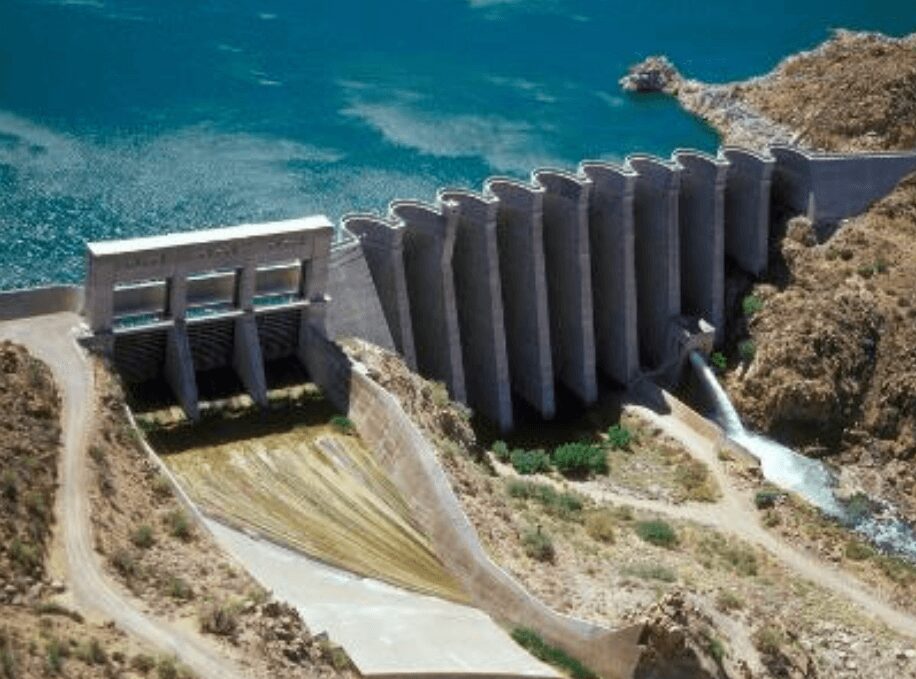
Summary: The members of the Legislature recognize the importance of raising the height of Bartlett Dam and preventing sediment buildup in the Horseshoe Reservoir, and support the U.S. Congress providing funding to conduct a feasibility study for increasing the height of Bartlett Dam.
Position: No position
Last Action:
01/19/2023
H – Referred to Committee – Rules – House Rules
______________________________________________________________________
Senate
SB 1079 – Water infrastructure finance authority; cities
Sponsor: Sen. Thomas “T.J.” Shope (R)
Summary: Municipalities are no longer required to obtain voter approval to enter into a financial assistance loan repayment agreement with the Water Infrastructure Finance Authority to finance wastewater treatment and drinking water treatment facilities.
Position: No position selected.
Last Action:
01/19/2023
S – Referred to Committee – Rules – Senate Rules
SB 1090 – Groundwater pumping; foreign ownership; prohibition
Sponsor: Sen. Anthony Kern (R)
Summary:
A corporation or other entity in which the government of another country has a “controlling interest” (defined) is not eligible to pump groundwater in Arizona.
Position: No position selected.
Last Action:
01/19/2023
S – Referred to Committee – Natural Resources, Energy and Water – Senate Natural Resources, Energy and Water
SB 1093– City water provider; service; requirements
Sponsor: Sen. John Kavanagh (R)
Summary: A municipality that provides water service is required to provide water service through a standpipe for water hauling to persons residing outside the city’s or town’s water service area who do not have access to sufficient water if a list of specified conditions apply, including that the municipality previously provided water service to those persons and there is no other source of water for those persons within 10 miles of their households. Conditionally repealed on the persons acquiring access to sufficient water supplies or on January 1, 2026.
Position: No position selected.
Last Action:
01/19/2023
S – Referred to Committee – Rules – Senate Rules
SB 1149 – Land division; acting in concert
Sponsor: Sen. John Kavanagh (R)
Summary: An applicant to split a parcel of land is required to sign an affidavit or similar document under oath acknowledging that the applicant is aware that it is unlawful for a person or group of persons to attempt to avoid a review of a land division or the subdivision laws of Arizona by acting in concert to divide a parcel of land into six or more lots, or to sell or lease six or more lots, by using a series of owners or conveyances or by any other method that results in the division of land into a subdivision or subdivided land. A county where a land division occurred or the State Real Estate Department are authorized to deny a building permit for one or more lots if a cease and desist or other similar notice has been sent to the person or group of persons under investigation for acting in concert.
Position: No position selected.
Source: https://new.azwater.gov/programs/legislative-affairs
Read, Learn, Discuss, Speak Up, Speak Out, Act
Copyright EnviroInsight.org 2023
